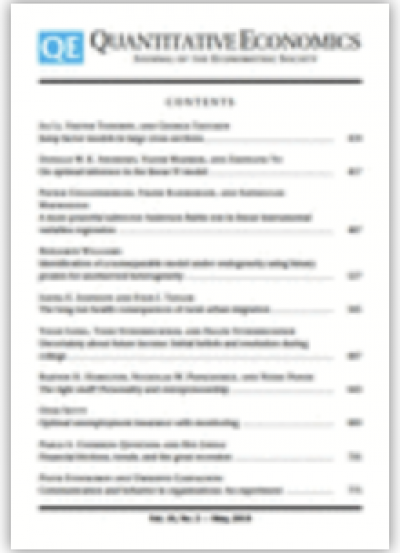Jump factor models in large cross-sections
Authors
Li, J; Todorov, V; Tauchen, GAbstract
We develop tests for deciding whether a large cross-section of asset prices obey an exact factor structure at the times of factor jumps. Such jump dependence is implied by standard linear factor models. Our inference is based on a panel of asset returns with asymptotically increasing cross-sectional dimension and sampling frequency, and essentially no restriction on the relative magnitude of these two dimensions of the panel. The test is formed from the high-frequency returns at the times when the risk factors are detected to have a jump. The test statistic is a cross-sectional average of a measure of discrepancy in the estimated jump factor loadings of the assets at consecutive jump times. Under the null hypothesis, the discrepancy in the factor loadings is due to a measurement error, which shrinks with the increase of the sampling frequency, while under an alternative of a noisy jump factor model this discrepancy contains also nonvanishing firm-specific shocks. The limit behavior of the test under the null hypothesis is nonstandard and reflects the strong-dependence in the cross-section of returns as well as their heteroskedasticity which is left unspecified. We further develop estimators for assessing the magnitude of firm-specific risk in asset prices at the factor jump events. Empirical application to S&P 100 stocks provides evidence for exact one-factor structure at times of big market-wide jump events.
Citation
Li, J., V. Todorov, and G. Tauchen. “Jump factor models in large cross-sections.” Quantitative Economics 10, no. 2 (May 1, 2019): 419–56. https://doi.org/10.3982/QE1060.

